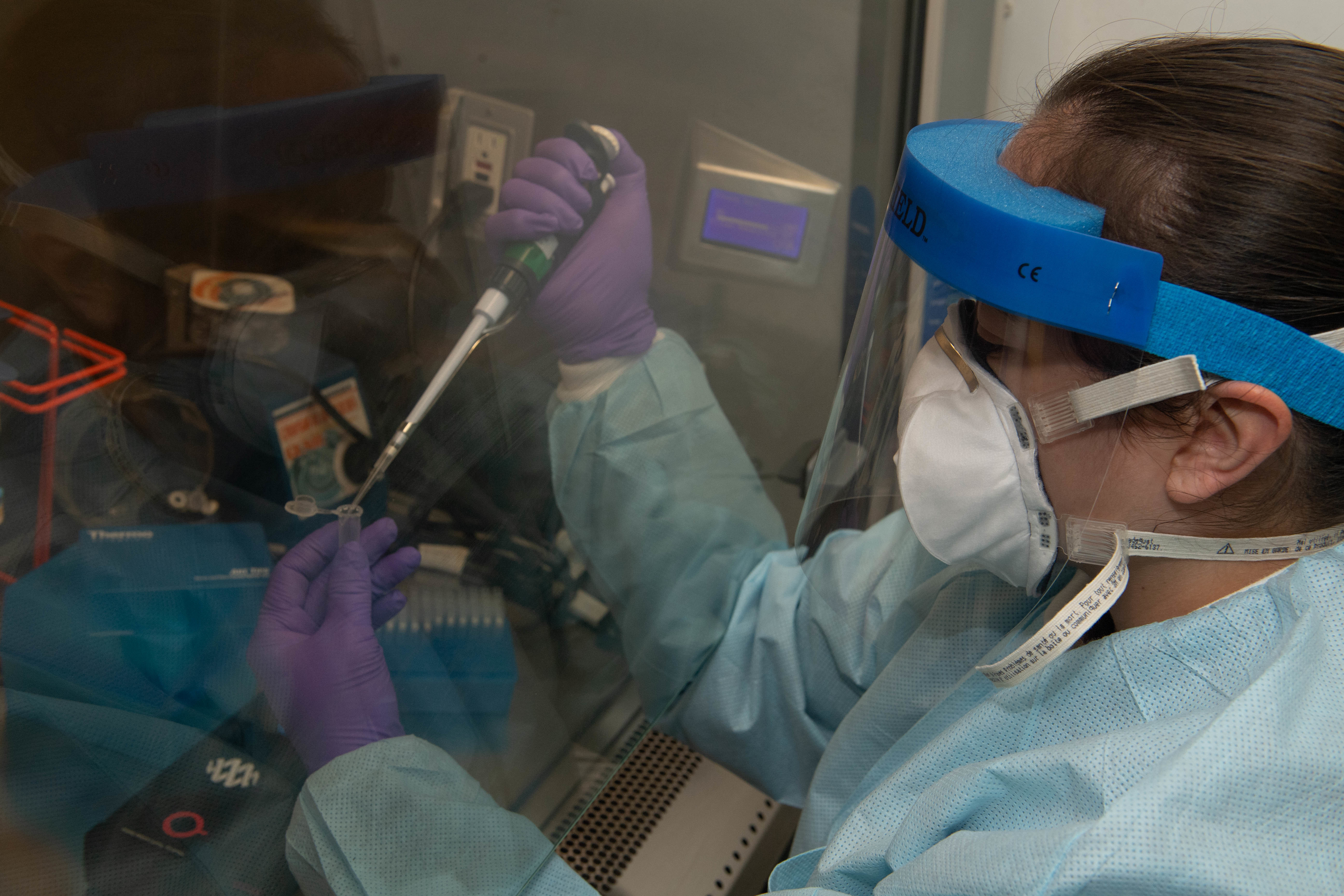
When the Navy next deploys an aircraft carrier, the crew of USS Nimitz (CVN-68) will likely not be tested for COVID-19 before departing, top Pentagon officials confirmed Friday.
A lack of test kits and military testing technology prone to report false negatives means it’s unrealistic for the Navy to attempt testing everyone who boards a ship before deployment, said Thomas McCaffery, the assistant Secretary of Defense for health affairs, during a media briefing.
“You can’t be sure if you test negative that you don’t have the virus,” McCaffery said. “Right now there is a finite capability in terms of kits, the reagents and supplies you need, and so in that environment, we want to make sure we devote those finite resources at the highest priority, and that is to test those showing symptoms, who we need to immediately treat and immediately isolate.”
The entire military is facing the same COVID-19 threat and dealing with the same shortage of accurate tests. However, the Navy has become particularly vulnerable to COVID-19 because of the nature of life on ships. Crew members work, eat, sleep and relax in close proximity to each other for weeks to months at a time. If a crew member becomes sick, quarantine options aboard ships are limited, even on a 97,000-ton aircraft carrier.
With Nimitz, the military is hoping to avoid a COVID-19 outbreak by imposing a two-week isolation period restricting the crew inside the skin of the carrier before deployment. The Navy just released a COVID-19 mitigation framework based on what it learned about the spread of COVID-19 from the recent experience of USS Theodore Roosevelt (CVN-71).
An outbreak of COVID-19 on Roosevelt forced the Navy to sideline the carrier in Guam, leaving 3,155 crew members now isolated on base or in local hotels. As of Friday, 92 percent of the crew had been tested for COVID-19, with about a tenth of Roosevelt’s crew testing positive. One sailor is now in intensive care.
Theodore Roosevelt’s commanding officer was relieved of command after a memo he wrote detailing the crew’s dire situation leaked to the media. He has since tested positive for COVID-19. Former acting Secretary of the Navy Thomas Modly resigned after facing a withering backlash to his public criticism of the captain.
Throughout the Navy, 976 active duty, civilian, contract personnel and dependents have tested positive for COVID-19. Currently, 30 of the COVID-19 patients are hospitalized and 125 patients have recovered. Of the four COVID-19 deaths, three were civilian personnel and one was a contractor.
“What we’ve learned, certainly in the Navy, is that with regard to COVID 19, we’re learning that stealth in the form of asymptomatic transmission is this adversary’s secret power,” said Rear Adm. Bruce Gillingham, the surgeon general of the Navy, during the briefing. “We recognize despite really our best efforts we’re going to have to learn how to operate with the virus.”
For example, a sailor aboard Nimitz recently reported suffering from COVID-19-like symptoms. The sailor was quickly isolated from the crew. Subsequent testing was inconclusive, but the incident prompted the Navy to conduct contact investigation and additional monitoring of other crew members.
“The constraint of the current testing technology is you may test negative, but the testing is not so accurate to say that you know that, that person is negative,” McCaffery said. “We do know we have folks who are asymptomatic, who may have tested negative, who are infected.”





